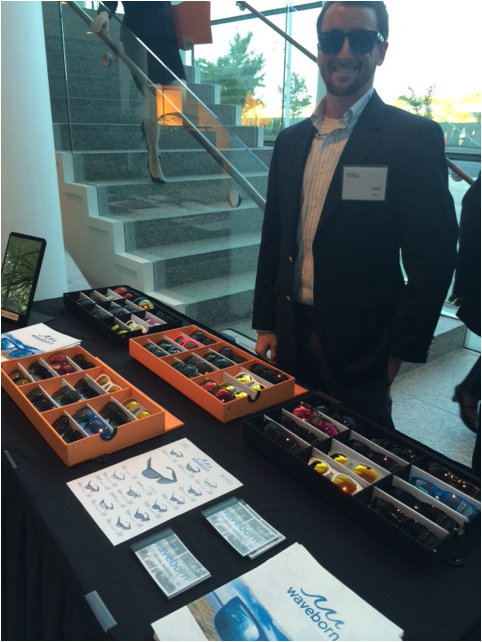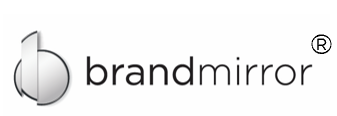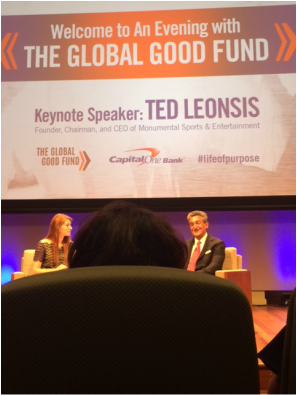Capital One and the Global Good Fundpartnered to deliver an evening with Ted Leonsis in September. The event was presented as a salon discussion where we talked and answered questions about living a life of purpose and meaning.
As it happened, Ted actually ended up sitting at my table, which provided interesting food for thought as the evening unfolded.
Each table had a plaque about “fellows” from the Global Good Fund to describe their organization and its social impact. In addition, Waveborn was there providing sunglasses and creating awareness about their company and its social impact too.
Ted spoke at length about his journey, from his first company at Georgetown to AOL and to his current focus on bringing the Olympics to DC in 2024. Here are some of the key takeaways from Ted on how individuals and companies can create opportunities that enable the “pursuit of happiness”.
1. Companies Must Allow Self-Expression
When organizations allow for self-expression, those companies have a much higher chance of winning in the market. This requires companies to allow their employees to contribute their unique value, not just do exactly what companies or managers tell them to do. This particular insight reminds me of Charlie Mayer at O-Power, where the more he is himself, the more he feels valued. Recognizing that each individual can contribute in meaningful ways is critical. Not locking people into roles or positions, but learning with them and supporting their individual impact is a great skill. This also requires employees know what their unique promise of value is too.
2.Organizations (and People) with Empathy Succeed
The more companies operate as a “we” and not an “I”, this also includes employees as well, the more effective they can lead. This refers to the concept of creating an “alliance” with employees. Companies have the opportunity to recognize that individuals invest in the company and that investing in return creates a powerful agreement, it can be a powerful leadership and management tool. This includes providing for diverse and flexible work situations, in addition to simply showing employees that they matter through relevant and engaging work.
3. Be in Pursuit of a Higher Calling
As new generations enter the workforce, there is definitely a demand and need for more “purpose” driven work. This is almost a requirement for millennials (born between 1982-2002) as well as Generation Z, those born 2002 and later. Not only that, but individuals in general are focused on giving back and having an impact through business (take the new B Corp as an example). Like Simon Sinek says, “people follow why you do something, not what or how you do it.”
4. Embrace Your Reckoning
Many of us will struggle in our life at some point, this could be due to life changing events such as a death in the family, bankruptcy, or losing your job. When these events happen, how do you deal with it? Do you embrace your reckoning and utilize it to figure out what really matters to you? Is it a galvanizing moment that changes your life and you create something positive out of it? For a company or an individual, this can be your moment to pivot, to identify the leap or move you need to take to stay relevant and more importantly keep moving forward.
5. Make Your List
For companies and people, what is your “hundred items list” in the first hundred days on the job? This could be a way to refocus teams and get results done. This approach is more effective if you are in a leadership position to help make it possible and lead from the top. For an individual, this could be your list of things that matter to you that you want to make sure you achieve. Think of it as your bucket list. The point is for you to be intentional about where you invest your time and understand “for the sake of what” are you doing it.
6. Don’t Put Off Philanthropy
For companies and individuals, Ted was very insistent that we all should give back now, not at some later date. Give back in ways that are powerful and hold organizations responsible for delivering value through your investments. Do not just give money to give money. Invest in a non-profit like it is a company. Ask for metrics and performance information, join the board if you really want to ask the tough questions and have true accountability.
When people and organizations can incorporate the above principles, both people and companies can be more effective and “happier”. After all, like Ted mentioned, we are all trying to realize our rights to life, liberty, and the pursuit of happiness.
Be your best self,
Jennifer Dalton
 For every pair of Waveborns sold, Waveborn gives away one prescription pair of glasses to a person in need or help fund a sight restoring cataract surgery through our charity partners, Unite for Sight and SEE International. Meet Mike Malloy from Waveborn.
For every pair of Waveborns sold, Waveborn gives away one prescription pair of glasses to a person in need or help fund a sight restoring cataract surgery through our charity partners, Unite for Sight and SEE International. Meet Mike Malloy from Waveborn.
